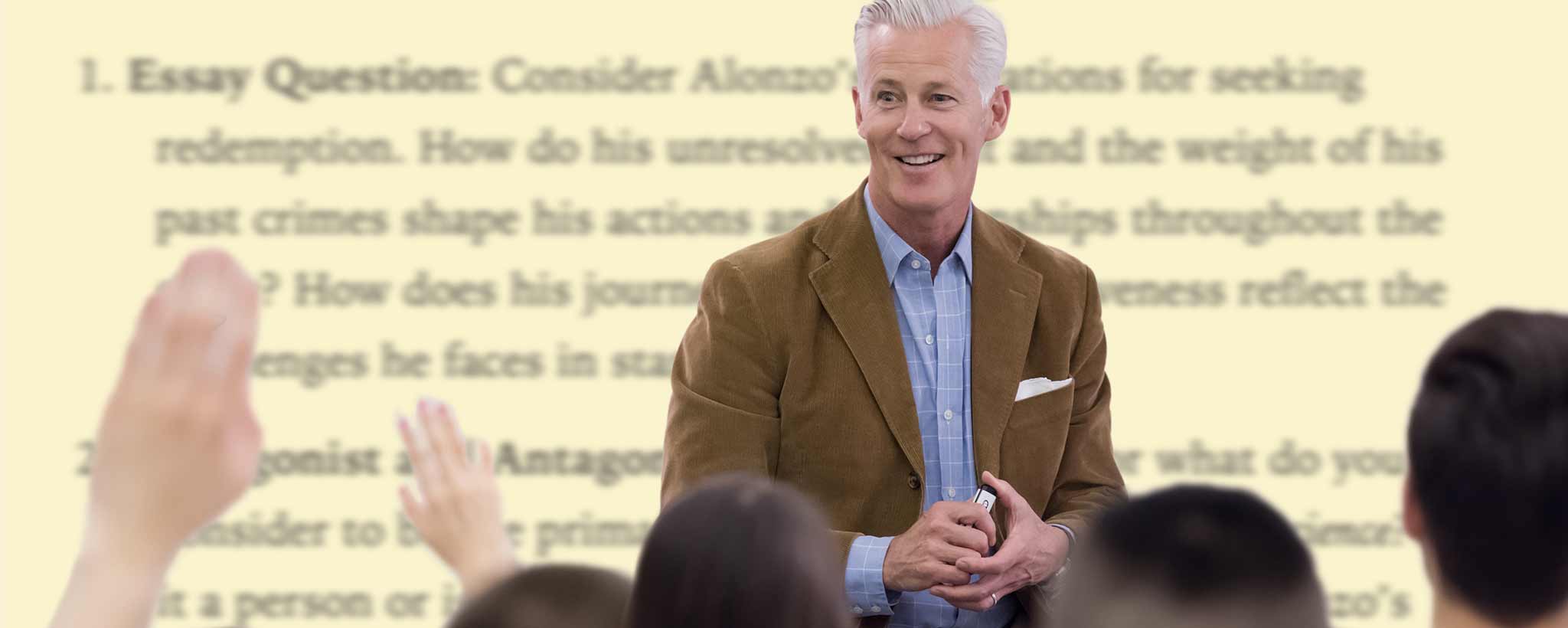Build a Foundation For Professional Writing
Students interested in creative writing have a broad range of career paths, from literary journalism to short stories, scriptwriting, novels, memoirs, poetry, and even video game writing.
Honing this craft requires not only dedicated writing practice but also extensive reading and analysis. To truly develop a personal style or niche, students must dissect stories, analyze techniques, and understand the interplay of characters, plot, and themes.
ClinicalNovellas Scholar offers a rich library of stories that can be invaluable tools in English literature and creative writing classrooms. Each story includes elements that make it ideal for creative analysis.
For those with a ClinicalNovellas Scholar membership, an added feature includes thought-provoking questions at the end of each story, guiding students to analyze various aspects of storytelling. These questions can be used as prompts for essays, class discussions, or even creative writing exercises.
Benefits of ClinicalNovellas Scholar Questions:
- Character Analysis: Prompts guide students to explore character motivations, relationships, and arcs throughout the story, helping them understand what makes characters compelling and believable.
- Plot Dissection: Students can evaluate the structure of the plot, identifying key turning points, climaxes, and resolutions. This insight helps them improve their own story pacing and narrative flow.
- Theme Exploration: Questions prompt students to delve into the story’s underlying themes and messages, encouraging critical thinking about how themes are conveyed through plot and dialogue.
- Writing Technique Evaluation: Some questions focus on specific writing techniques used in the story—such as foreshadowing, symbolism, and tone—helping students gain a deeper understanding of how to apply these techniques in their own work.
- Creative Writing Inspiration: Prompts can also serve as springboards for creative writing exercises. Students might be asked to rewrite the ending, develop a new scene, or imagine a character’s backstory, sparking their imaginations.
With a variety of genres—including drama, mystery, thrillers, romance, and sci-fi—there’s something for every budding writer to explore. The collection spans flash fiction, short stories, and multi-episode miniseries, allowing students to immerse themselves in different styles, formats, and techniques.
Story Examples for Creative Writing Students:
Here are a few examples of flash fiction ideal for analyzing structure, character, and theme:
- The Edge of Consciousness: Learn what happens when mystery writer, Zane, challenges his waking abilities by capitalizing on the enigmatic aura of barely conscious creativity.
- The Window Framing Beauty: Set in 19th-century England, this story combines beauty and tragedy in a single, evocative setting. Students can explore themes of secrecy and symbolism in storytelling.
- Barracuda Generation: A dystopian look at a future world where humanity grapples with ecological and existential threats. This sci-fi piece is perfect for examining world-building and high-stakes conflict.
- Orchestral Infamy: Composer Pierre battles physical and emotional challenges in his quest to shatter Mozart’s record. Students can dissect character motivation and ambition.
- The Hologram Child: In a near-future world, a couple turns to technology to achieve their dream of parenthood. This sci-fi story allows for analysis of ethical themes and futuristic setting.
Each of these stories offers students rich material to analyze, discuss, and use as inspiration for their own creative writing exercises.
ClinicalNovellas Scholar provides an engaging, narrative-driven way to explore storytelling techniques and deepen creative skills. With resources for analyzing characters, plot, themes, and style, it’s an ideal tool for both students and educators in creative writing programs.
All stories are the intellectual property of Kevin RRW. Any use beyond educational purposes requires licensing.





